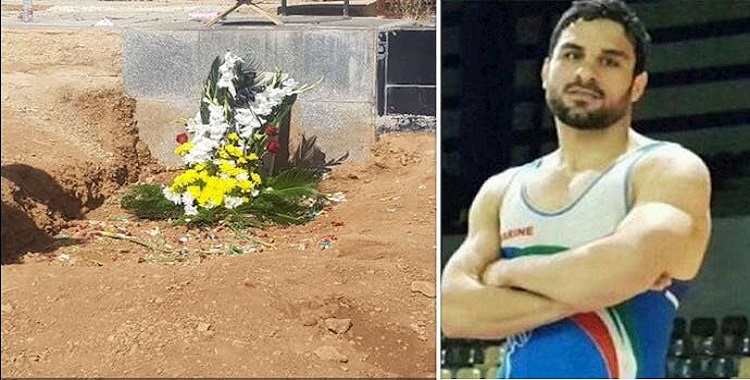Iran: The Consequences of Navid Afkari’s Execution; EU’s Responsibility

Written by
Mansoureh Galestan
Wrestling champion Navid Afkari
The execution of Navid Afkari, Iranian wrestling champion and now a national hero, continues to have political and social consequences for both the Iranian people and the regime and brings more responsibility for the international community.
The restive Iranian society has proven it has millions of brave youths like Navid, who rattled the regime’s foundations during the major Iran protests in 2018 and 2019. Now Navid’s execution will only add fuel to the flames of the Iranian people’s uprising. In this regard, the state-run Etemad daily on Tuesday wrote: “Wasn’t the Judiciary aware of the Iranian society’s sensitivity and anxiety? Didn’t they know this case [Navid’s execution] is no longer a regular case, and any hastily and imprudent action could increase the price the system has to pay?”
Now the regime must pay both a massive social and political price.
Amid its increasing international isolation and almost a week before the activation of the UN “snapback” mechanism, while the regime had invested in the European Union’s appeasement policy, Navid’s execution further distances the EU from the regime.
Germany’s embassy in Iran strongly condemned Navid Afkari’s execution, as did the Foreign Ministries of France and the United Kingdom. Also, the scheduled trip of the regime’s Foreign Minister, Mohammad Javad Zarif, to Europe was canceled. He was supposed to travel to Berlin, London, and Paris to strengthen the appeasement policy and find a breakthrough for the regime, crushed under sanctions.
In this regard, the state-run Hamdeli daily wrote: “On one hand, the Iranian delegation will be constantly questioned by the European media about this sentence. On the other hand, European leaders should answer for Zarif’s trip to their countries, given the recent incidents.”
For the past 40 years, oppression and export of terrorism have been the regime’s two pillars of existence, and the mullahs have never changed course in this regard.
In the summer of 1988, the mullahs massacred over 30,000 political prisoners. This killing spree never stopped, and the international community’s silence over this crime emboldened the mullahs’ regime to oppress people on the streets. Murdering 1,500 protesters during the nationwide Iran protests in 2019, and the continuous execution of detained protesters such as Navid Afkari or Mostafa Salehi – who was executed on August 5, 2020 – are testaments to this fact.
mek, Iran, navid afkari, salehi
Mostafa Salehi (left), Navid Afkari (Right)
The regime has been using execution and torture to quell the restive society and boost its forces’ morale. Navid’s execution was also meant for the same reason.
But Navid’s case, with an international campaign both before and after his execution, particularly the Iranian Resistance’s role in echoing his voice, turned this execution into a trap for the mullahs’ regime.
The regime’s desperate attempts to portray Navid as a “murderer” rather than a protester and rebellious youth failed due to an international campaign against his execution that showed Navid as what he indeed was: a hero.
Now, as to the international community, mainly European powers, condemning Navid’s execution or canceling Zarif’s trip is not enough and will not save the lives of thousands of other detained protesters. European powers should expel the regime’s ambassadors and intelligence agents from their countries, shut down the mullahs’ embassies, and end their trade and relations with this brutal regime. If Europe had condemned Navid’s death sentence in advance, he might have been alive today. Iranian people await strong measures.

